Hermann Göring
Nacimiento : 1893-01-12, Rosenheim, Germany
Muerte : 1946-10-15
Historia
Hermann Wilhelm Göring (12 January 1893 – 15 October 1946) was a German politician, military leader and convicted war criminal. He was one of the most powerful figures in the Nazi Party, which ruled Germany from 1933 to 1945.

Self - Politician (archive footage)
En 1945, dos jóvenes soldados estadounidenses, los hermanos Budd y Stuart Schulberg, reciben el encargo de recopilar pruebas filmadas y grabadas de los horrores cometidos por el infame Tercer Reich para demostrar los crímenes de guerra nazis durante los juicios de Núremberg (1945-46). La historia de la realización de «Núremberg: una lección para el mundo de hoy», un documental histórico de primer orden, estrenado en 1948.
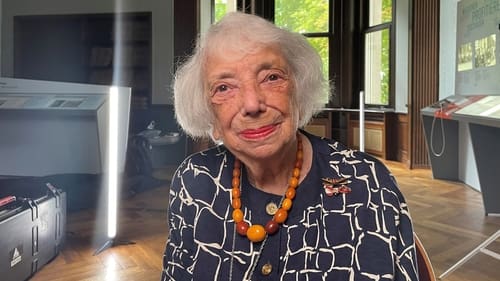
Self (archive footage)
It was arguably the deadliest conference in human history. The topic: plans to murder 11 million Jews in Europe. The participants were not psychopaths, but educated men from the SS, police, administration and ministries. The invitation to the meeting at Wannsee came from Reinhard Heydrich, head of the Reich Security Main Office. The Wehrmacht's campaigns of conquest in Eastern Europe marked the beginning of the systematic murder of Jews in Poland and the Soviet Union. In mid-September 1941, Hitler made the decision to deport all Jews from Germany to the East. Although there had been transports before, Hitler's order represented a further escalation in the murderous decision-making process. Persecution and discrimination had been part of everyday life since 1933. But as a result, the living conditions for the Jews in the Third Reich became even more difficult, among them the Berlin Jew Margot Friedländer, born in 1921, and the Chotzen family.

Self - Politician (archive footage)
Germany, 1929. Helmut Machemer and Erna Schwalbe fall madly in love and marry in 1932. Everything indicates that a bright future awaits them; but then, in 1933, Adolf Hitler and the Nazi Party rise to power and their lives are suddenly put in danger because of Erna's Jewish ancestry.

Self - Politician (archive footage)
Durante más de una década, el Reichsmarschall Hermann Göring, mano derecha de Adolf Hitler durante el infame Tercer Reich, reunió una colección de miles de obras de arte que fueron meticulosamente listadas en un inmenso catálogo. Pero ¿cómo se hizo con estas obras? ¿Por qué robó colecciones enteras, principalmente aquellas que pertenecían a familias judías, finalmente víctimas de la Shoah? ¿Fue para satisfacer sus ambiciones estéticas y su insaciable codicia personal o actuando en favor del beneficio común de los gerifaltes nazis?

Self (archive footage) (uncredited)
Countless people around the world know the pictures from Leni Riefenstahl's films, even if they have not seen them in their entirety. The work of the German director has burned itself into the collective memory. Even decades after the end of the Nazi era, she showed no remorse and presented herself as an apolitical, naive follower of the Nazi criminal regime. Her artistic service for the cinema was always recognized. But book author Nina Gladitz shows after decades of research that Hitler's favorite filmmaker was not only a follower, but also a perpetrator during the Third Reich, who instrumentalized other filmmakers such as the brilliant cinematographer Willy Zielke in order to gain fame for herself.

Self (archive footage)
This is the story of an incredible rise to power, the most comprehensive documentary on Hermann Goering ever made. He was a man of many faces: vain, ambitious, more brutal than any other of Hitler's minions, yet the most popular Nazi official of all, at times even more popular than Hitler himself. He embodied the jovial side of the Third Reich. Yet the same man who organised dissolute bacchanals also founded the Gestapo, set up the first concentration camps, and had his own comrades murdered in the purge of 1934. These unique personal records form the largest and most important single film find from the Nazi era in past years.
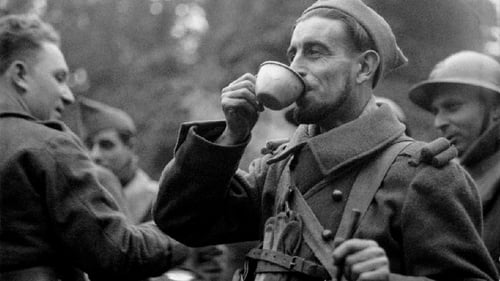
Self - Politician (archive footage)
September 3rd, 1939. Britain and France declare war on Nazi Germany, only two days after the Wehrmacht invades Poland. This day, the sad date when the fate of the world changed forever, the Phoney War began: eight months of uncertainty, preparations, evacuations and skirmishes.

Self (archive footage) (uncredited)
How could Hitler and Stalin, sworn ideological enemies, come to a secret pact in 1939? The captivating and detailed story of the diplomatic fiasco that led to the signing of the Nazi-Soviet pact and its devastating consequences.
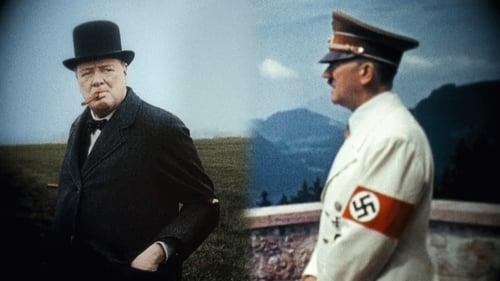
Self - Politician (archive footage)
Winston Churchill, one of the most revered men of the twentieth century. Adolf Hitler, one of the most hated leaders in contemporary history. Between 1940 and 1945, these two enormously contradictory personalities faced each other in both politics and war. A clash of giants whose story begins in the trenches of the World War I and ends with the debacle of the World War II.
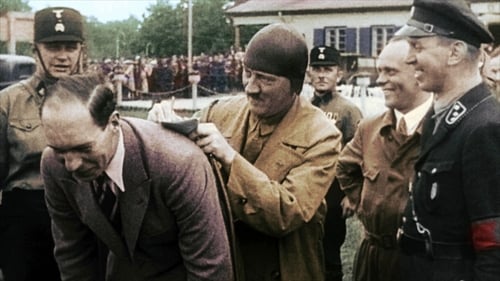
Self (archive footage)
How Germany was when its people entered the nightmare of World War II? Despair and fear lead a hungry population to follow the chilling call of just one man to world domination. A real-life horror story, an ominous tale of violence and deception, which takes place from 1919 to 1934. (Entirely made up of restored, colorized archival footage.)

Self (archive footage)
La historia de Hans-Thilo Schmidt, ingeniero berlinés que, en la sombra, contribuyó a ganar la guerra de los servicios de inteligencia contra Hitler y a alterar el curso de la Segunda Guerra Mundial, al revelar a Francia los secretos de Enigma, la máquina que hace indescifrables los mensajes alemanes. Asche, nombre con el que es conocido por los franceses, se afilia al partido nazi y desde su puesto de funcionario comienza a pasar información sobre el rearme secreto de Alemania y el calendario de las futuras invasiones.
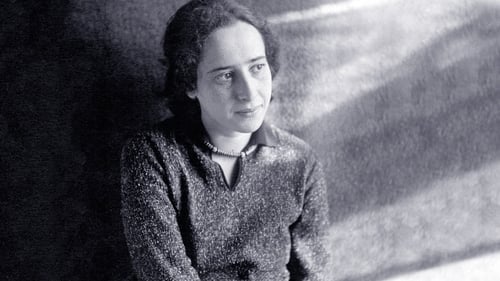
Self - Politician (archive footage)
The life and work of German political philosopher of Jewish descent Hannah Arendt (1906-75), who caused a stir when she coined a subversive concept, the banality of evil, in her 1963 book on the trial of Nazi war criminal Adolph Eichmann (1906-62), held in Israel in 1961, which she covered for the New Yorker magazine.

En mayo de 1945, un grupo de soldados de infantería del ejército norteamericano entraron en la casa familiar del comandante de las SS Heinrich Himmler, incautando cientos de cartas privadas, documentos y fotografías. Este documental revela el contenido de dicho material. Vanessa Lapa, periodista y realizadora nacida en Bélgica, vive desde 1995 en Israel, donde ha realizado cientos de reportajes para la TV israelita. (FILMAFFINITY)

Self (archive footage)
Seventy years on, brothers Colin and Ewan McGregor take viewers through the key moments of the Battle of Britain, when 'the few' of the RAF faced the might of the Nazi Luftwaffe. As they fly historic planes, meet the veterans, explore the tactics and technology, Colin and Ewan discover the importance of the Battle and the surviving legacy of the 1940's campaign for the modern RAF.
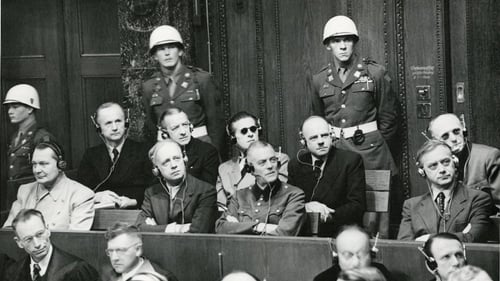
Himself
The documentary of the Nuremberg War Trials of 21 Nazi dignitaries held after World War II.
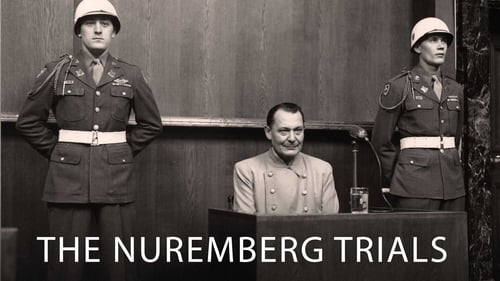
Self (archival footage)
One journalist described it as a chance "to see justice catch up with evil." On November 20, 1945, the twenty-two surviving representatives of the Nazi elite stood before an international military tribunal at the Palace of Justice in Nuremberg, Germany; they were charged with the systematic murder of millions of people. The ensuing trial pitted U.S. chief prosecutor and Supreme Court judge Robert Jackson against Hermann Göring, the former head of the Nazi air force, whom Adolf Hitler had once named to be his successor. Jackson hoped that the trial would make a statement that crimes against humanity would never again go unpunished. Proving the guilt of the defendants, however, was more difficult than Jackson anticipated. This American Experience production draws upon rare archival material and eyewitness accounts to recreate the dramatic tribunal that defines trial procedure for state criminals to this day.
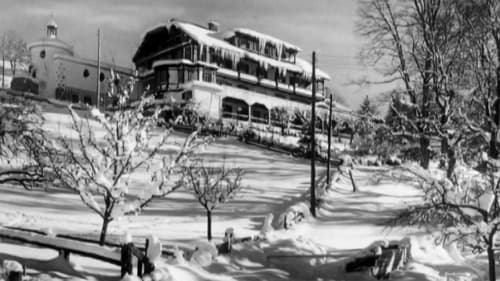
Adolf Hitler spent over 1,000 days on the Obersalzberg, his mountain holiday refuge near Berchtesgaden. It was there he made his decisions about war and destruction. The producers, through special permits, explore the abandoned concrete tunnels in search of the relics of history of Hitler’s mountain and to tell almost forgotten tales of the people who lived there, high up in the shadow of power.
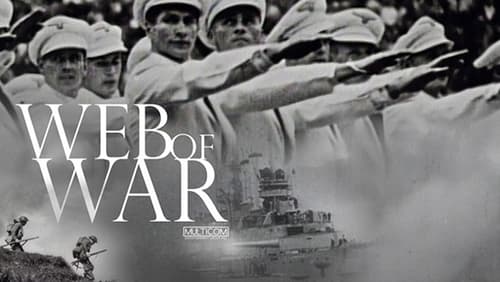
Self (archive footage)
The stories of the battles that brought together a Polish cavalry officer, a Canadian captain, and a polish underground member are told by the very same Canadians who survived them.

Self - at Nuremberg Trials (archive footage)
The mass murder of Jewish people by the Nazi regime is chronicled, with a warning that anti-Semitism is on the rise and the events of the Holocaust could happen again. The history of European Jewish culture and events before and during the Holocaust are seen in newsreels, photographs, and animated segments. The words of the victims of the era are read, and footage from the liberation os a concentration camp is shown.

Self (archive footage)
This film is a kind of anthology about Vienna, from the invention of film to the present day. The aim is to break down the usual clichéd "image of Vienna" such as that found in the traditional "Vienna Film" by juxtaposing documentary footage, newly shot material and subjective sequences created by various artists. Individual, self-contained sections of the film gain new meaning within the context of historical material. Familiar sites appear estranged when edited together with historical scenes. Other scenes appear like a persiflage or satirical. The film does not incorporate any commentary whatsoever. It is a collage of diverse materials aimed at conveying a distanced image of Vienna to the viewer
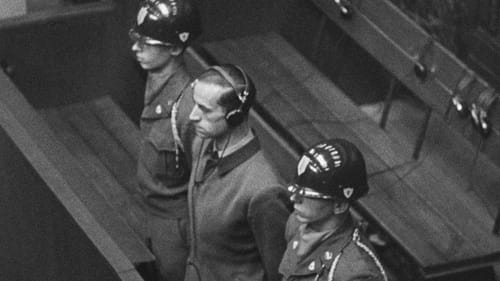
Self (archive footage)
This exceptional, disturbing and thought-provoking documentary compares the atrocities committed by the Nazis as revealed during the Nuremberg trials to those committed by the French in Algeria and those done by the Americans in Vietnam. The four hour epic questions the right of any country to pass self-righteous moral judgements upon the actions of another country.

Self (archive footage) (uncredited)
Documents the major trial of the Nazi war criminals and the violent acts that they were accused of.

Self (archive footage) (uncredited)
Indagación sobre los orígenes del fascismo y su desarrollo en Italia y en otros países mediante material de archivo. Esta revisión muestra el marco ideológico del fascismo y el rastro que ha dejado en la mentalidad de la gente.
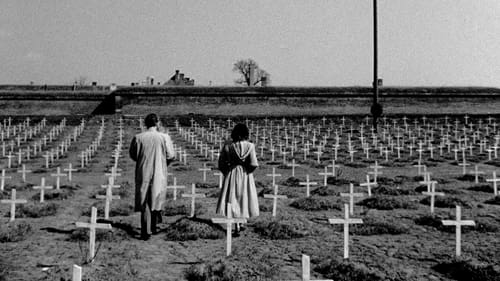
Self - Politician (archive footage)
Praga, durante la Segunda Guerra Mundial. Hana Kaufmann, una oftalmóloga judía, se casa con el Dr. Antonín Bureš, un hombre cristiano. Cuando su familia es enviada al campo de concentración de Theresienstadt, su romance se convierte en una lucha por la supervivencia.
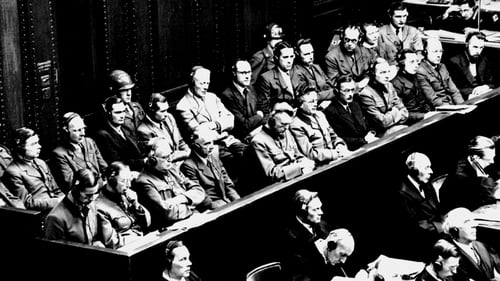
Self
How, in November 1945, after the end of the World War II and the fall of the Third Reich, the international prosecutors participating in the first Nuremberg trial —formally, the International Military Tribunal— built their case against the top Nazi war criminals using the films and records produced by the own regime, obsessed with documenting everything in its long path of infamy and crime.

Self (archive footage)
An account of Adolf Hitler's rise and fall, his relationship with Eva Braun and their days of leisure at the Berghof, their Bavarian residence.

(archive footage)
This short traces the cooperation between nations that resulted in the development of atomic weapons, and how they were used to end World War II. It also makes the case for cooperation between nations in order that the further development of nuclear weapons will not spiral out of control and endanger the safety of the world.
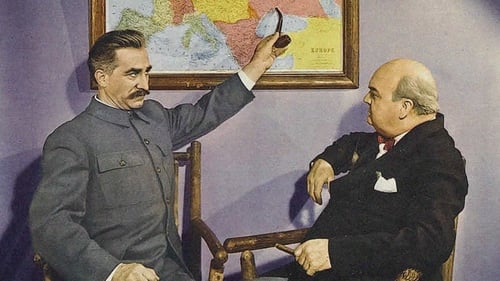
Self (archive footage) (uncredited)
El empresario Joseph E. Davies es nombrado por el presidente Roosevelt embajador de los Estados Unidos en la Unión Soviética para que averigüe cuáles son las intenciones de este país respecto a la inminente Segunda Guerra Mundial (1939-1945). El embajador se llevará algunas sorpresas en una nación que pocos conocen realmente.

Self
The center piece of the this propaganda film is Mussolini's visit to the the German Olympic Stadium in 1937, where he was greeted that 1 million people jammed into the stadium to hear him speak. Also features speeches in nearby Mayfield, various meetings that Mussolini had with prominent members of the Nazi party in Munich, Mussolini's watching German Army field exercises, and, with Hermann Göring, reviewing military parades.

Self
Said to pick up where "Triumph of the Will" left off, this film showcases highlights of the Nazi Party rallies in Nüremberg in 1936 and 1937. The main focus of the film begins with extended footage of the Gothic splendor of Nüremberg from the air, Hitler's arrival at the airbase, his motorcade into the city, and the ensuing ceremonies. Other, much more propagandistic elements, are edited in; they include: past Nazi party marches and rallies, parachute drops, Wehrmacht exercises in the Zeppelin fields, random military formation night rallies and random shots of massed crowds, fireworks, torch lit marches, even live explosions.
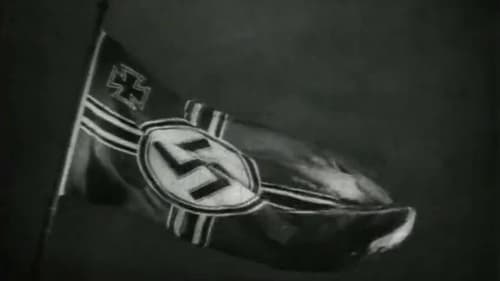
Self
Se trata de un film propagandístico del las fuerzas armadas del régimen nazi, que actualmente está parcialmente perdido (sólo se conservan aproximadamente 17 minutos que fueron redescubiertos en 1970). El documental es una cobertura del VII Congreso del Partido Nazi, que tuvo lugar en Núremberg. Se presenta una advertencia de lo que está por venir por medio de la representación de un simulacro de batalla, escenificado por las tropas alemanas durante la ceremonia en Núremberg del Día de las Fuerzas Armadas de Alemania, en 1935. La cámara sigue a los soldados desde sus preparativos a comienzos del día en sus tiendas de campaña, y cuando marchan cantando a la amplia plaza donde tiene lugar una guerra en miniatura, en la que participan la infantería, caballería, aeronaves y defensas antiaéreas. Asimismo, tiene lugar la primera aparición pública del nuevo tanque alemán, que es presentado ante Adolf Hitler y miles de espectadores.
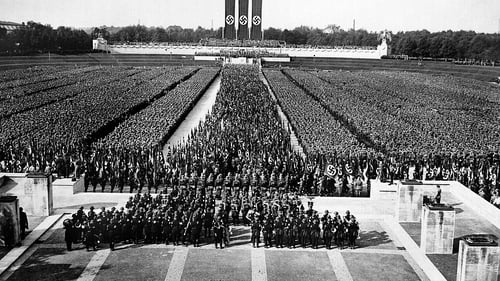
Self
Alemania, año 1934. Adolf Hitler acababa de llegar al poder un año antes. En Nuremberg el partido nacionalsocialista celebra un triunfalista y patriótico congreso en el que se exaltan los valores raciales y patrios del pueblo ario alemán.
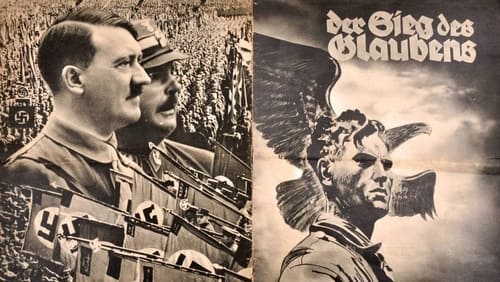
Self
Cobertura del 5º Congreso del Partido Nazi en Nürenberg, del 1 al 3 de septiembre de 1933. El documental comienza con el amanecer del primer día, cuando la tranquilidad se transforma en un bullicio que culmina con la llegada de Hitler.

























